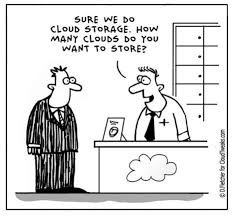Cloud ERP Solutions and Customers
June 2, 2022
Cloud over self-hosting ?
Due to the advent of cloud ERP solutions, customers have many ERP solutions to choose from and also have the option to go to many service providers. Add to this mix, self-hosting v/s cloud hosting options with ERP and the recipe for confusion is complete.

Self-hosting may sound like a silver bullet that can meet all your needs but ERP on cloud has many advantages
- Auto updates in terms of technology & features
- Data backups being taken regularly & reliably
- Security updates are regularly applied
- Ease of access of support teams from any location
- API access to your ERP data by other dependent web/mobile applications over internet
Some Customers are biased towards self-hosting as they think their data is more secure in their network than a cloud hosting environment. This is not true as the data center any cloud ERP would choose to host in would be always more secure and less vulnerable to hacking than small business run LANs that are connected to internet via local providers.
Another contention point for self-hosting is features not present currently in ERP and heavy customization. Most customers owning SMEs ask for features just because they have seen them somewhere & hence think it is important to have those. They don't realize that a simple ERP implementation is the best to start with initially. Other features can be built over time as their processes scale and get more complicated.
The choice in the end as always is left to the Customer and they can choose to be hosted on Cloud or live with the traditional mentality of hosting ERP solutions in their own premises. Both approaches work but the cloud is definitely a long term bet.
If you are looking for cloud ERP solutions for your business do write in to us with your requirements at hello@openetech.com or call us on: +91-7977831224.

Pawan Mehta
Pawan is the Principal Solution Consultant at Open eTechnologies. He helps enterprises implement various ERP solutions based on their business processes.
No comments yet. Start a new discussion.